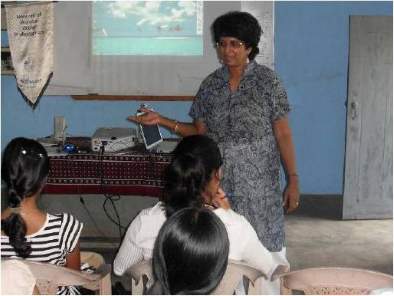
A GWP survey to identify the cause of the outbreak found that local restaurants were using water from illegal boreholes, rather than the town’s supply. This water was highly contaminated as the restaurants had substandard pit latrines. In addition, 127 households were practicing open defecation in the area, affecting the town's water supply.
The key was to raise awareness of the problem. GWP Sri Lanka carried out a media tour and the approach worked: the restaurants now use water from the town supply and have proper toilets, and the households practicing open defecation were provided with toilets. There have been no hepatitis outbreaks since.
Industrial pollution
Industrial pollution is also an issue. The Maha Oya, one of Sri Lanka’s largest rivers, was affected by factories discharging effluents, dyes and chemicals into its waters. In the town of Alawa, many people suffered from skin diseases and other health issues due to contaminated water. GWP experts gave evidence to local authorities and provided data about the impacts of the pollution. In response, the authorities introduced regulations forcing the factories to treat the effluent. Now, 15,000 people have access to better quality water.
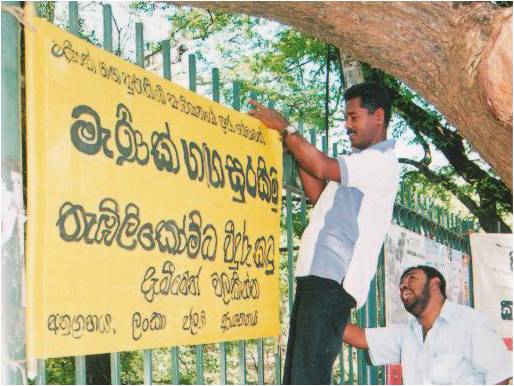 A similar problem affected people in Anuradhapura, where effluents discharged from the army camp and prisons affected the water used by 40,000 people. To tackle the problem, GWP Sri Lanka brought the local health department and water board together with the army, prisons and local community. The result? A community cleanup effort, including the construction of effluent treatment ponds, giving those 40,000 people access to safe water.
A similar problem affected people in Anuradhapura, where effluents discharged from the army camp and prisons affected the water used by 40,000 people. To tackle the problem, GWP Sri Lanka brought the local health department and water board together with the army, prisons and local community. The result? A community cleanup effort, including the construction of effluent treatment ponds, giving those 40,000 people access to safe water.
School sanitation
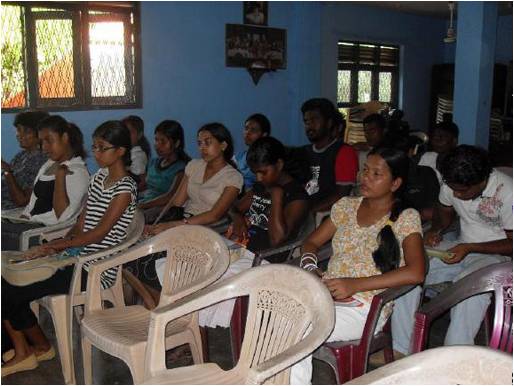
A major focus for GWP in Sri Lanka is school sanitation, as part of Sisu Jala Hamuwa, GWP Sri Lanka’s schools programme. In June-July 2010, the Nilwala Area Water Partnership (AWP) and the University of Ruhuna, in collaboration with NetWater, surveyed sanitation levels in schools in Matara District, Southern Province. The survey, which sampled 35 of the 350 schools in the district, highlighted many of the problems and produced some startling findings; for example, 26 of the 35 school principals surveyed had a poor understanding of the toilet requirements for their schools.
This type of information is vital to GWP’s work. The survey gained the immediate attention of the district authorities, who previously had very little information about sanitation. The findings drew national media attention, and the coverage instigated further responses from authorities across the country. The Institute for Participatory Interaction in Development (IPID) has been working in partnership with GWP Sri Lanka from its inception. Mallika Samaranayake, the chairperson, said, “Our collaborative efforts have been in the area of creating awareness and sensitivity towards water conservation, prevention of pollution and improved sanitation particularly among school children and parents, using a participatory approach. We greatly appreciate the partnership contribution of GWP Sri Lanka and commit ourselves to continue the joint efforts in the future as well.”
River sand mining
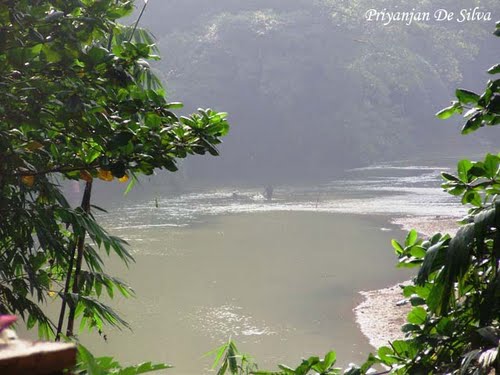
GWP has worked on another major challenge facing Sri Lanka – river sand mining. The illegal removal of sand from riverbeds, for the construction industry among other uses, occurs at a high rate in Sri Lanka, as miners and other beneficiaries can make a lot of money from the practice. A survey by the University of Colombo and members of NetWater – both are GWP Partners – in four river basins found that ten times as much sand was being extracted as permits allowed.
The practice causes several problems. River banks erode more quickly, which can damage bridges and nearby roads, and water quality deteriorates as the water table lowers and, in some places, sea water contaminates rivers and groundwater. The lower water table affects farmers, for example, when root systems no longer reach groundwater.
GWP has been tackling illegal river sand mining on several fronts. In Ratnapura District, Sabaragamuwa Province, there was a particular interest in resolving the problem among district and local authorities. The researchers who conducted the study in the four river basins made recommendations about how to tackle the problem. These were submitted to the relevant authorities, including the District Secretary, who took the findings to the annual national conference of District Secretaries. The study also attracted the attention of high officials of the Presidential Secretariat, who will pursue a discussion on this subject.
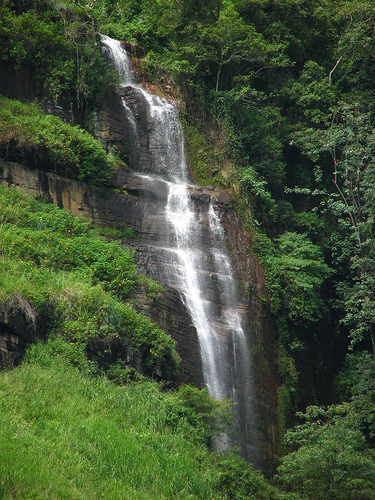
To improve the enforcement of regulations, GWP and its Partners held a programme for police and regulatory staff in Sabaragamuwa Province, Ratnapura District. The event was held in September 2009, in collaboration with NetWater, Capnet lanka, Sabaragamuwa Provincial Council and Ratnapura District Secretariat. Local politicians at the event acknowledged the need for an integrated national policy to cover water and natural resources management, especially with the impacts of climate change likely to compound the problems. Individuals reporting illegal mining are also being supported. Whereas once they were threatened for this, the authorities now take action, especially when Area Water Partnerships get involved.
These new, stricter regulations have directly benefited many communities. GWP also organised direct action to rectify the problem, including a programme to protect river banks and replant river reservations in Kolamuna Oya, a tributary adjacent to Dedura Oya. Flood waters have replenished sediment in many rivers, and the water table has recovered in many regions. Overall, perhaps 300,000 people in Sri Lanka now have better lives because of the regulation of illegal sand mining.
In October 2010, GWP organised a media event in Deduru Oya, in which 16 media institutions participated. The chair of GWP Sri Lanka was interviewed live, and the National Broadcasting Service covered the event during a one-hour programme. In November 2010, GWP reprinted 1,000 copies of ‘River Sand Mining: Bane or Boon’, a document highlighting the problems.
These activities helped to raise awareness on river sand mining at a national level, and had an immediate effect; illegal river sand mining in Kolamuna Oya has since stopped. In 2011, GWP and NetWater will use the study of river sand mining in an awareness programme for the construction industry and architects.
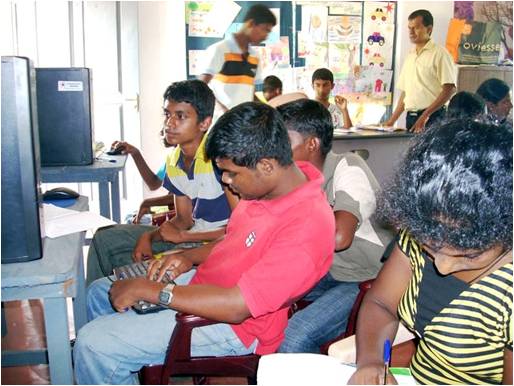 Social networking has played a part in GWP’s approach to raise awareness of environmental issues. Previous approaches to gathering data were too slow; by the time agencies responded, the culprits had vanished. But people can now record environmental damage as it happens – through blogs, a Facebook page, and the GWP Sri Lanka website.
Social networking has played a part in GWP’s approach to raise awareness of environmental issues. Previous approaches to gathering data were too slow; by the time agencies responded, the culprits had vanished. But people can now record environmental damage as it happens – through blogs, a Facebook page, and the GWP Sri Lanka website.
